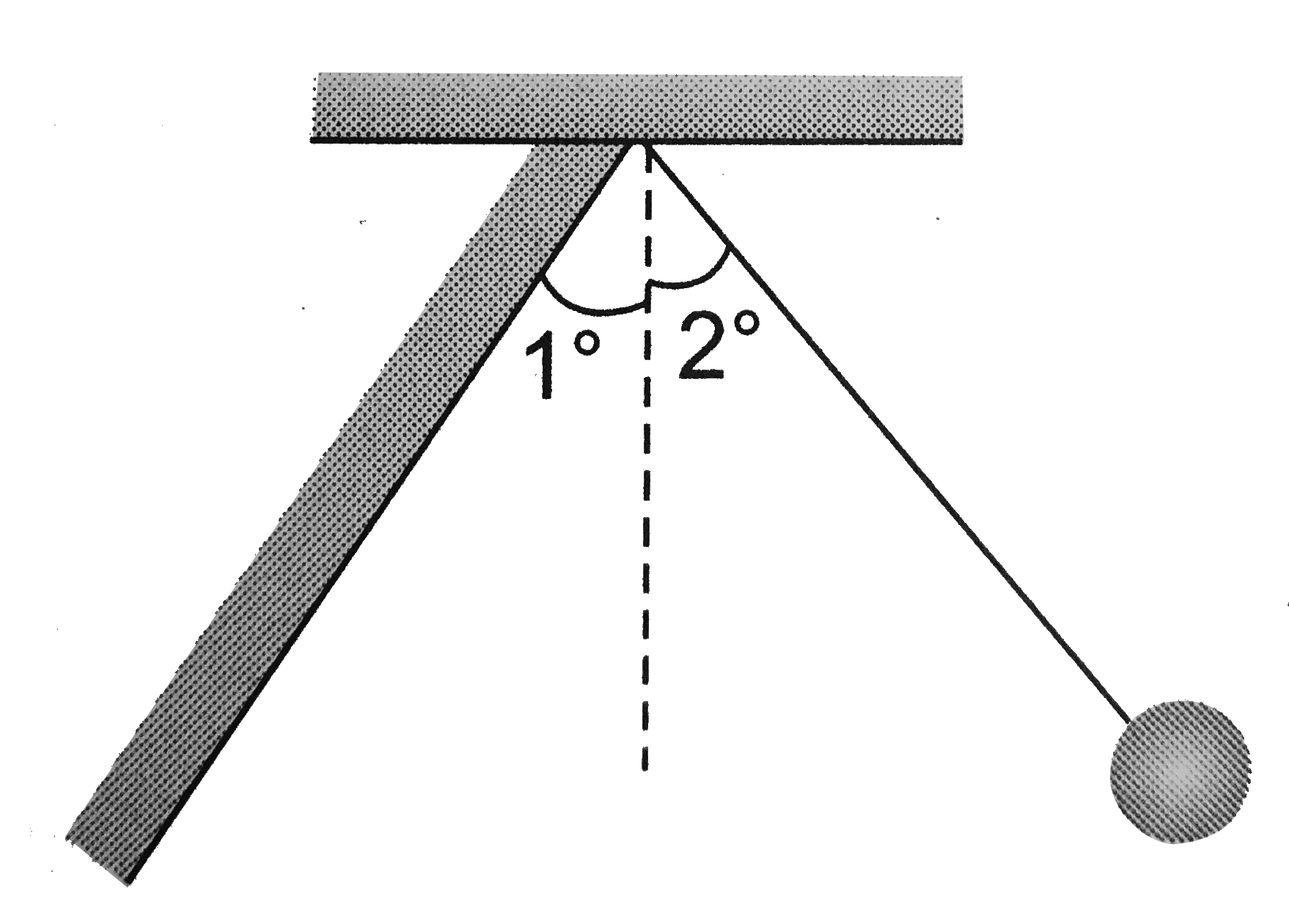The periodic time of a simple pendulum of length 1 m and amplitude 2 cm is 5 seconds. If the amplitude is made 4 cm , its periodic time in seconds will be
8s
2s
4s
The correct Answer is:4
To solve the problem, we need to determine how the periodic time of a simple pendulum changes when the amplitude is altered.
1. Understanding the Given Information:
- The length of the pendulum (L) = 1 m
- Initial amplitude (A1) = 2 cm
- Initial periodic time (T1) = 5 seconds
- New amplitude (A2) = 4 cm
2. Formula for the Period of a Simple Pendulum:
The formula for the period (T) of a simple pendulum is given by:
T=2π√Lg
where:
- L is the length of the pendulum,
- g is the acceleration due to gravity.
3. Analyzing the Effect of Amplitude:
- For small amplitudes, the period of a simple pendulum is independent of the amplitude. This means that as long as the amplitude is small (which both 2 cm and 4 cm are), the period remains constant.
- The periodic time is determined only by the length of the pendulum and the acceleration due to gravity.
4. Conclusion:
Since the length of the pendulum and the acceleration due to gravity remain unchanged, the new periodic time (T2) when the amplitude is increased to 4 cm will still be:
T2=T1=5 seconds
Final Answer:
The periodic time when the amplitude is made 4 cm will still be 5 seconds.
---
- The length of the pendulum (L) = 1 m
- Initial amplitude (A1) = 2 cm
- Initial periodic time (T1) = 5 seconds
- New amplitude (A2) = 4 cm
The formula for the period (T) of a simple pendulum is given by:
T=2π√Lg
where:
- L is the length of the pendulum,
- g is the acceleration due to gravity.
- For small amplitudes, the period of a simple pendulum is independent of the amplitude. This means that as long as the amplitude is small (which both 2 cm and 4 cm are), the period remains constant.
- The periodic time is determined only by the length of the pendulum and the acceleration due to gravity.
Since the length of the pendulum and the acceleration due to gravity remain unchanged, the new periodic time (T2) when the amplitude is increased to 4 cm will still be:
T2=T1=5 seconds
The periodic time when the amplitude is made 4 cm will still be 5 seconds.
Topper's Solved these Questions
- OSCILLATIONSBOOK - AAKASH INSTITUTE ENGLISHCHAPTER - OSCILLATIONSEXERCISE - ASSIGNMENT (SECTION-B )
25 Videos
- OSCILLATIONSBOOK - AAKASH INSTITUTE ENGLISHCHAPTER - OSCILLATIONSEXERCISE - ASSIGNMENT ( SECTION-C )
11 Videos
- OSCILLATIONSBOOK - AAKASH INSTITUTE ENGLISHCHAPTER - OSCILLATIONSEXERCISE - Try Yourself
86 Videos
- NUCLEIBOOK - AAKASH INSTITUTE ENGLISHCHAPTER - NUCLEIEXERCISE - ASSIGNMENT (SECTION-D)
10 Videos
- PHYSICAL WORLDBOOK - AAKASH INSTITUTE ENGLISHCHAPTER - PHYSICAL WORLDEXERCISE - ASSIGNMENT (Section-B)
4 Videos
Similar Questions
The time period of a simple pendulum of length 9.8 m is
View SolutionThe time period of a seconds' pendulum :
View SolutionWhat is the period of a simple pendulum whose length is 50 cm?
View SolutionCompare the time periods of two pendulums of length 1 m and 9 m.
View SolutionCompare the time periods of two simple pendulums of length 1 m and 16 m at at place.
View SolutionThe time period of a simple pendulum of infinite length is (R=radius of earth).
View SolutionThe time period of a simple pendulum is 2 s. Find its frequency .
View SolutionTime period of a simple pendulum in a freely falling lift will be
View SolutionThe time period of a simple pendulum is 2 s. What is its frequency?
View SolutionA simple pendulum of length 1m is allowed to oscillate with amplitude 2∘. it collides at T to the vertical its time period will be (use g=π2)

View Solution
